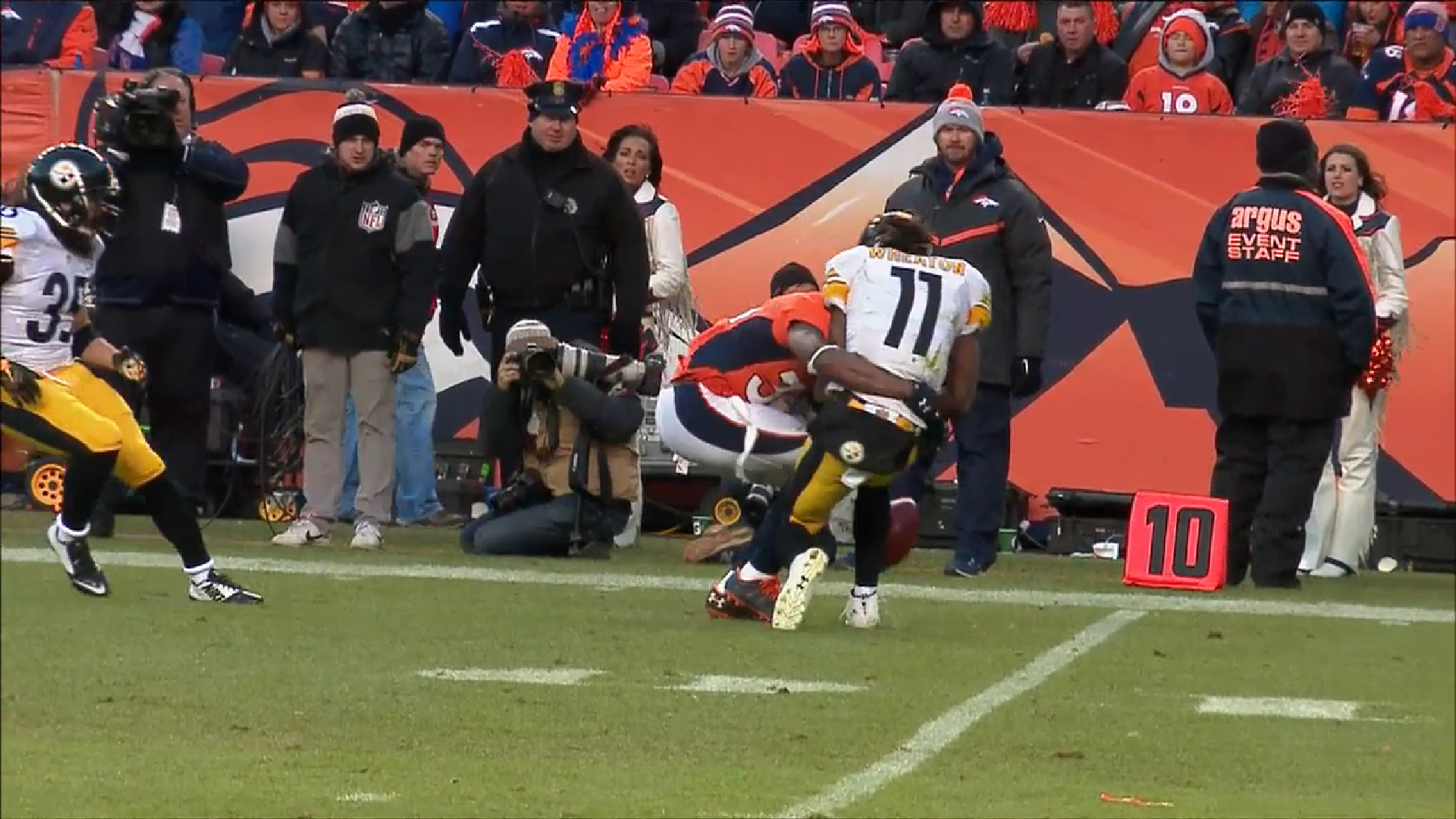When Pittsburgh Steelers wide receiver Antonio Brown was ruled out for the Broncos game with a concussion, they lost not just one highly valuable player, but two, because he was not only their top wide receiver, but also their top punt returner. As it turned out, the Steelers didn’t really have a good backup for the latter.
In spite of the fact that he has had little to no background returning in general, and especially returning punts specifically, the Steelers enlisted Markus Wheaton as their backup punt return man behind Brown, and his first in-game attempt that not a promising one, foreshadowing a long day for the third-year wide receiver back deep.
In all, Wheaton dropped back to receiver six punts, fielding six of them and returning them for a total of 20 yards, averaging five yards per return, with a long return of 12. He also muffed one punt that was subsequently recovered by the Steelers in the end zone for a touchback.
But that doesn’t tell the whole story of how his day went as a punt returner.
The Broncos’ first punt came midway through the first quarter, with Britton Colquitt punting from his own 40-yard line. Colquitt angled it sharply to his left, angling for the left corner shallow of the end zone, prompting Wheaton to try to adjust to get over to the ball.
Lacking experience in the area, he made no effort to field the ball, stepping aside to let the ball bounce, but in doing so, he allowed a Broncos player to run past him and make an admittedly athletic effort to punch the ball back into the field of play without stepping into the end zone for a touchback. Wheaton’s failure to make an effort to block him is was cost the Steelers 17 yards in field position after the punt was downed at the three-yard line for a net of 57 yards.
Colquitt’s second punt came from the Steelers’ 42-yard line, which Wheaton fielded at the eight-yard line. With room to run rather than fair catch, he shagged the ball and returned it seven yards to the 15-yard line, limiting the net punt to 28 yards.
He didn’t have to wait long for his next opportunity. A few minutes later, Colquitt was punting from his own 27-yard line, skying one 48 yards to the Steelers’ 26, but the coverage was late getting down the field. Wheaton did a nice job of juking the first player down the field and getting up the sideline for 12 yards.
Later in the game, he learned the usefulness of a fair catch by not calling for one. With the punt drifting away from him and leading him into the coverage, he stepped under the ball and fielded it only to be hammered moments later at the spot. He was fortunate to hold on to the ball.
That would not prove true for his next attempt at fielding a punt, on which he was hit immediately after grazing the ball, resulting in a loose ball that Pittsburgh was fortunate to recover by knocking the ball out of bounds.
But of course he failed to hold on to the last one as well, a 39-yard punt to the Steelers’ seven-yard line. This one was a flat out muff, finally signaling for a fair catch only to allow it to bounce off his chest and behind him, where mercifully the team recovered in the end zone for a touchback.








